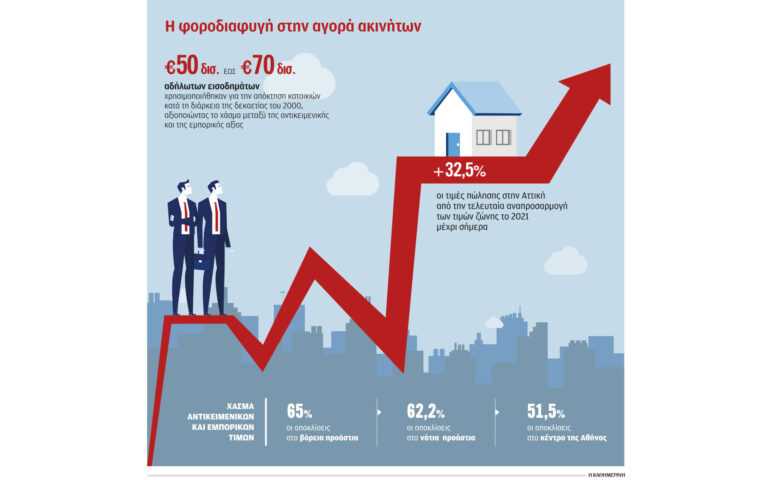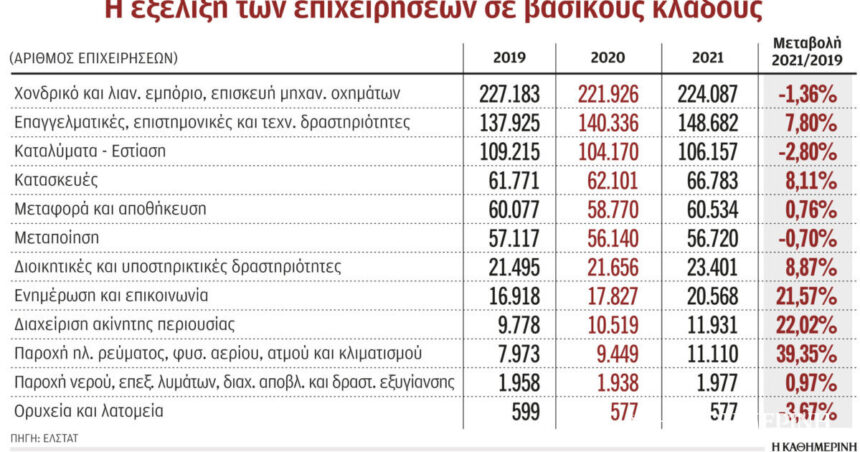Economy based on trade and on services it is still the Greek, with the processing to have a more limited role, despite the fact that it could offer greater gross value added, more stable jobs and also enhance extroversion. At the same time, the trade and service sectors – mainly the tourism and the focus– they prove to be particularly vulnerable to extraordinary events, such as the pandemic, which led not only to a reduction in their turnover, but ultimately to “lockouts”. In 2021, one in four businesses in Greece it was commercial with over 40% of the total business turnover coming from this very sector. In the same year, however, the data show about 3,000 fewer commercial businesses compared to 2019, the last year before the pandemic, but also about 3,000 fewer businesses in the tourism and catering sectors. At the opposite end are branches such as real estate and the constructionswith a significant increase in business in the three years 2019-2021.
What about processing? The number of manufacturing firms is also dwindling, a phenomenon, of course, that has been going on for about 40 years. Although the weak position of manufacturing in the Greek production model is also related to external factors, such as globalization, which led most of the world’s production to the Southeast Asian region, there are also internal factors, such as deindustrialization, which began in Greece in the 80s and continued in the years that followed. And the question of changing the production model may have been raised several times in recent years, especially after the impasses that eventually led to the memorandums, but the famous change did not happen.

According to the data on the structure of the businesses announced yesterday by Hellenic Statistical Authority (ELSTAT), in the year 2021 a total of 881,717 companies were active in Greece in the sectors of industry, construction, trade and services. Data, however, for the three-year period 2019-2021 only exists for part of the business sectors (see table).
The sectors with the largest number of businesses were wholesale and retail trade with 224,087 businesses, which make up 25.4% of all businesses, the professional, scientific and technical services sector with 148,682 businesses, which make up 16.9 %, followed by accommodation and catering services with 106,157 businesses, corresponding to a percentage of 12%. In 2019, the number of commercial enterprises was 227,183 and of enterprises providing accommodation and catering services 109,215. If, in fact, there were no support measures to deal with the effects of the pandemic, it is almost certain that the “bleeding” would have been much greater. Fewer compared to 2019 were manufacturing companies in 2021, 56,720 against 57,117, making up 6.4% of all companies.
On the other hand, the number of companies active in the construction sector increased by approximately 6,000 or by 8.11% and by 22.02% the number of real estate management companies. The largest increase, 39.35%, was recorded by the number of companies operating in the electricity, natural gas, steam and air conditioning supply sector.




